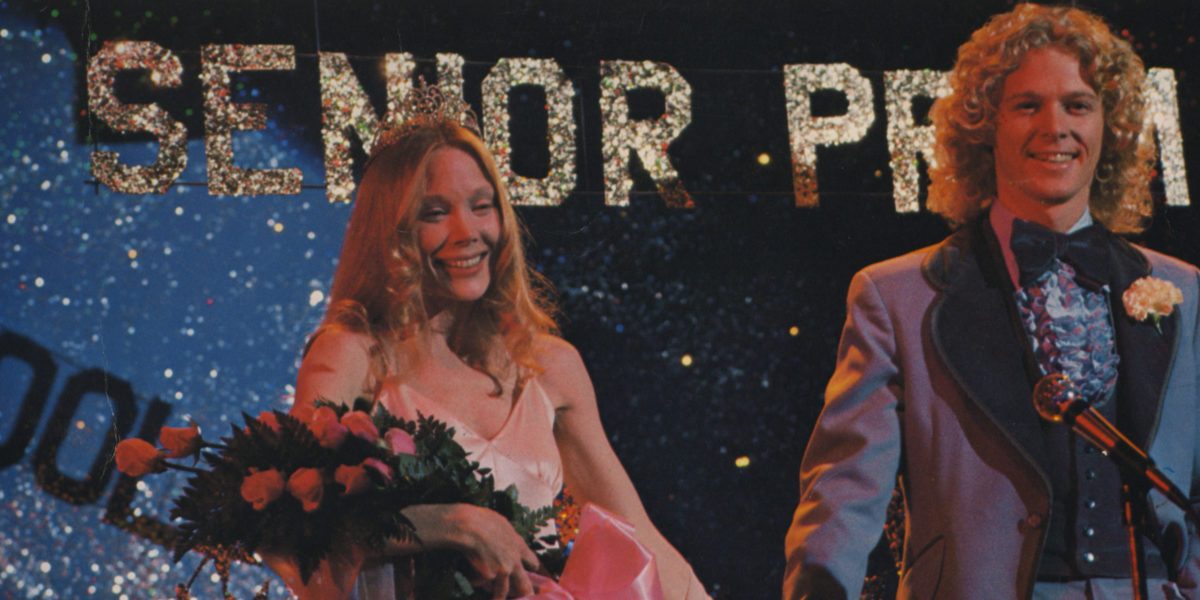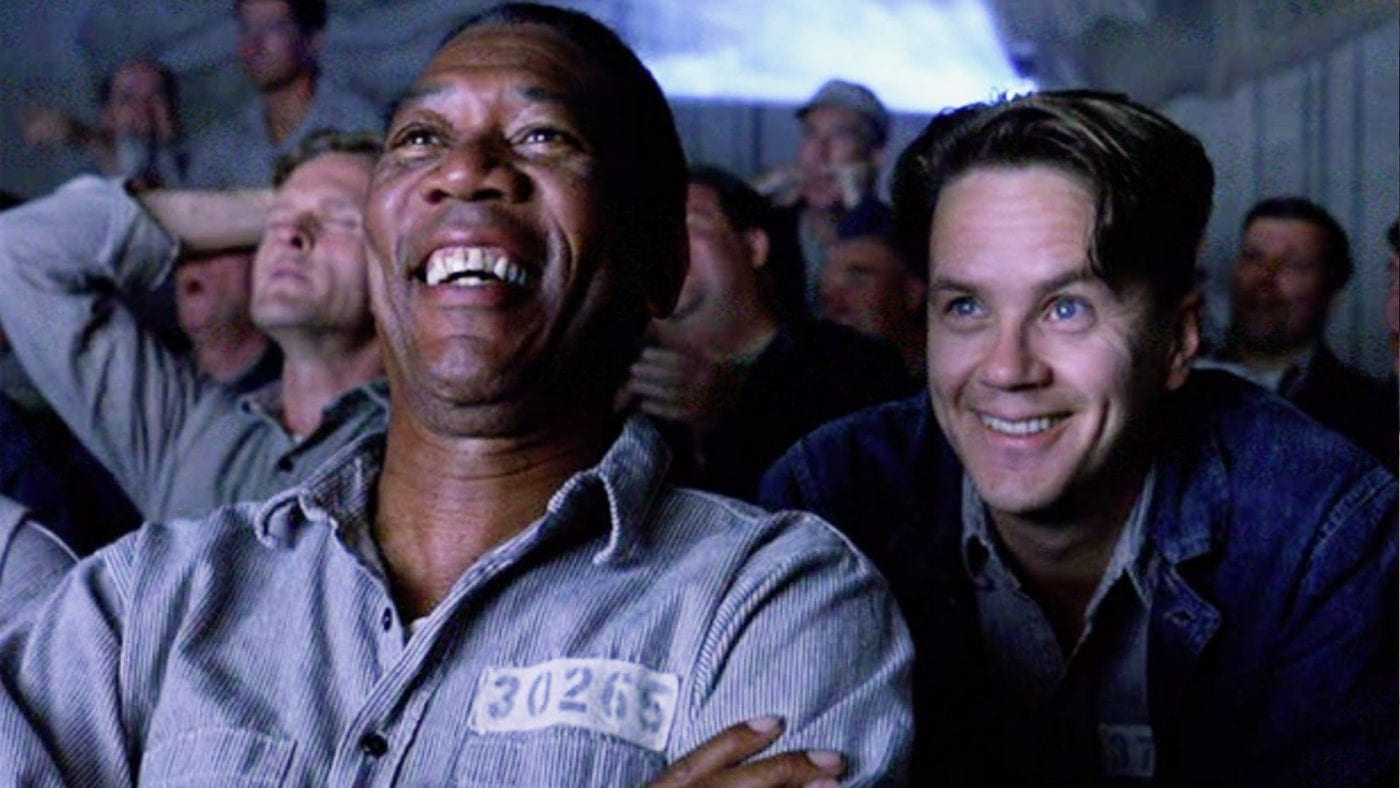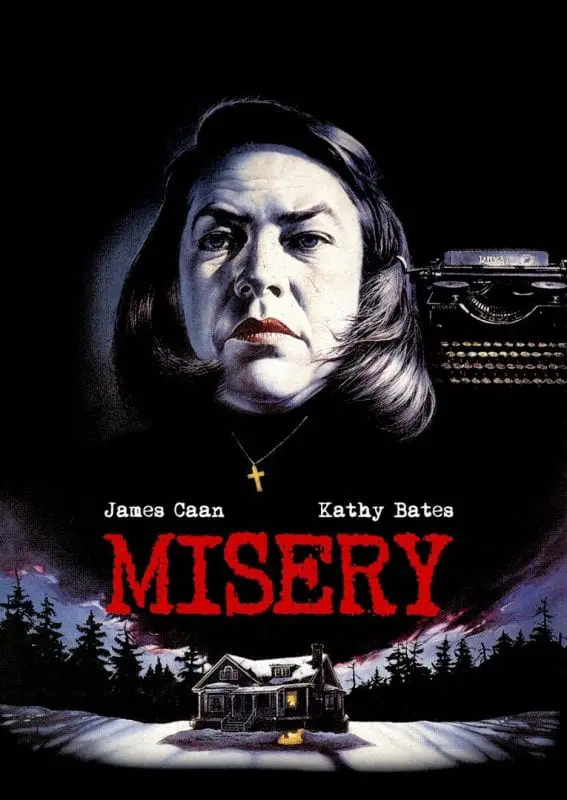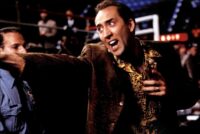“On-Screen, Off-Screen” is our monthly film series created to showcase a more personal retrospective about some of our favourite filmmakers. Each month, one 25YL staffer will choose one of their own favourite filmmakers—be it a director or performer or writer or composer or production designer, etc—and will analyse what it is about their on-screen work that they love, and how they’ve been influenced/inspired by them off-screen either personally or creatively or artistically. Maybe one of us will write about the entire filmography of a director, or someone might choose an actor associated with playing a certain role multiple times, or maybe there’s that one soundtrack by a composer that gets them every time. This month sees Ben Locke reflecting on the life and career of one of the greatest writers of all-time, Stephen King. Enjoy!
A few months ago, I wrote for this site about how David Lynch inspired my own writing through his fearlessness to portray any and all kinds of disturbing and x-rated imagery in his works. It helped me to kick down the door of self-doubt and write what I needed to write having already spent a few years trying. Before I ever got to that point though, there was another man. Someone who inspired me to pick up the pen in the first place. Another American whose name is part of the fabric of modern history. I doubt there’s a person alive in the developed world who doesn’t know his name, this legendary wordslinger, perhaps America’s most prolific writer and all-around cool guy. Stephen King.
Now, this edition of “On-Screen, Off-Screen” may have a little less focus on actual movies and a little more focus on writing, with me interpreting the “off-screen” element to include Stephen’s writing rather than just my own inspirations. But considering the staggering number of his works that have been adapted into film or television series (I counted around 89 according to Hollywood Script Notes with the second part of 2017’s It remake, Doctor Sleep, the Pet Sematary remake, and Castle Rock not included in that), I don’t think it’s going to be an issue?
So, where did Stephen’s journey begin? From a very young age, Stephen was writing his own stories, originally composing copies of screenplays from horror movies he watched at his local theatre in his native Bangor, Maine. His mother then encouraged him to write something original, promising to pay him a quarter if he could. From there, Stephen devoted much of his free time to creative writing, even throughout school, where he and his brother David started their own newspaper in the basement of the family home. Stephen would write original short stories for the paper, which would be a big feature for each new edition.
Whilst studying at the University of Maine, Stephen met the love of his life, Tabitha Spruce. Now happily married for over 47 years, it could be said that it was Tabitha who was responsible for turning Stephen from amateur writer, into the world-renowned novelist we know today. This is where Stephen almost didn’t become a writer at all. When Stephen and Tabby were just a young couple with very little money, they lived in a double-wide trailer where Stephen would write on his wife’s portable typewriter in the laundry room after a long day of teaching. Once the kids were down, Stephen would pound away in that tiny room into the night, crafting what would become the first draft of Carrie. I won’t bore you with the details of how Stephen managed to happen upon the idea of a menstruating high school girl with telekinetic powers, but I will say this…Stephen wrote several pages but then discarded them, thinking it was trash and nobody would want to read it. The turning point came one day when Tabby was cleaning out the trash can in the little laundry room and happened upon the tossed out pages covered in cigarette ash. Tabby fished the pages out, brushed the ash away and read them while Stephen was at work and then convinced him that it was good material and that he should continue with the story. The rest, as they all say, is history. The sale of Carrie in paperback netted Stephen his first six-figure cheque and the key to one of the most successful writing careers ever seen.

So, how does all of this tie-up with my own inspiration and the big screen? Well, Carrie (published in 1974) was so popular that it was only a couple of years before the hugely successful movie adaptation was released in November of 1976, starring Sissy Spacek, John Travolta and Piper Laurie. From this point, you could barely finish a new King novel before being met with the flashing lights of the movie theatre proclaiming its name to your town.
Being a child of the ’90s, there was already almost two decades of Stephen King’s work out there to be consumed, but it wasn’t until I was in my teens that I discovered him. The first King movie I watched—though I didn’t know it was a Stephen King movie at the time—was 1994’s The Shawshank Redemption. I remember watching this film with my father, though I have no concrete idea how old I was, only that I must have been somewhere in my teens and in high school. I remember how graphically honest it seemed to be about prison life. From the psychological torment felt by those locked behind the iron bars to the rape scene in the storeroom, and the realisation of how the world moves on without you as you live out your days trapped behind the same four walls. Those of you who have seen the film know exactly what I’m talking about there, and know how devastating it was to see this realisation play out.

Even now as a (hopefully) mature adult, this film remains perhaps my favourite King movie because it encapsulates everything that is so characteristic of his work. The things that make his writing speak to me so easily. Number one being its portrayal of characters that are so solidly grounded in the real world. If it wasn’t made known to you that this was a work of fiction, I would be able to fully believe the characters could have been real people. Their emotions, their lives, their stories. It’s all real. Andy could so easily be the guy that lived down the street and murdered his cheating wife. Now there’s a family of four living there. He’s a successful car salesman and she is a personal assistant. The two kids are polite and come home with good grades from school. It’s such a shame about Andy, he was always such a nice guy. We went to his house for a barbecue a few summers ago, and I could hardly believe he was capable of such a thing. They seemed like such a nice couple.
You see what I did there? None of that is part of the story, but it’s totally believable and that is what is at the heart of Stephen’s writing. Although he writes about the supernatural, at the heart of the story there’s always that likeable, working-class guy in a world that has a beating heart of believable characters. He writes about humble people in a humble setting. Take the town of Castle Rock for example. It’s a fictional place set in Stephen’s home of Maine, but it features in so many of his works and has been sculpted into a town with its own history and its own horrors. Case in point being Hulu’s fantastic Castle Rock series. There’s so many characters and events tied to the name of Castle Rock, that the creators of the show have been able to weave a story through them all into a complete series, which could so easily play out as one of those “true crime” documentaries you see on TV in the early hours of the morning.
Both Stephen and myself are from working-class families—albeit Stephen’s childhood and family finances being a bit more unstable than my own—we had a similar upbringing, and his stories just speak to me. I can open any of his novels and watch—for the most part at least—any of the film adaptations made out of his stories and feel instantly at home. Even his writing style is humble. He’s never written in a formal style like writers such as Tolkien, whom I love also. Tolkien’s writing is instantly recognisable as being put down by a well-spoken Englishman, whereas Stephen’s writing is much more informal and relaxed and easy to consume. It’s always seemed to me to be written in what I like to call the “common tongue”. He writes as people talk and people think. He doesn’t get too hung up on perfect grammar or sentence composition. You read it and feel as though it could be you who said that or described that. The writing is just as real as the characters and the environments are. That’s not to say he isn’t professional in his writing, only that he has perfected prose composition to a point where it just flows in through our eyes and instantly forms the perfect image in your head. You can see the people, you can hear their voices, you can picture their surroundings and although this is obviously the aim for any writer, King—for me—is the best around at making this happen.
To me, there’s no period of getting your head into the right space whilst reading. All too often it takes me a couple of pages to get into a rhythm with the writing, but with King, I can open up any page and away I go.
I think perhaps it is this, however, where movies and television fall short. There’s not a whole lot of those adaptations that pull off this feature and transfer it to the screen. Though there are so many of them out there, for me, there’s only a few that speak to me as easily as the books do. Shawshank being my favourite and the one that captures Stephen’s style the best, which is why I focussed so heavily on it earlier. The 1990 mini-series of It did a decent job, perhaps because it was quite cheesy and fairly low-budget with practical special effects and replacement animation.
The older King movies seem to me to be clouded with an air of the time, by which I mean, they are firmly stuck in the ’70s or ’80s, which somewhat detract from the realism for me. I’ve always thought that despite the dating in the actual text of the novels which pins them down to a specific era, most of King’s stories could happen in any decade. Salem’s Lot, for example, took place in the ’70s but were it to have been written now and be the next Stephen King novel, it would still carry the same weight and realism as it did more than 40 years ago. Coincidentally, the remake of the 1979 adaptation of the same name—which was a two-part mini-series released in 2004 and starred Rob Lowe and Donald Sutherland—remains perhaps my second favourite King movie and solidifies my idea that his stories are timeless and could be told in any period of our modern history.

Some of the other notable ones that I think capture Stephen’s vision and style are 1994’s mini-series adaptation of The Stand (controversial I know), the 2007 movie The Mist, and 1990’s Misery. There just seems to be something about them that feels “right” with regards to the source material that modern filmmaking just doesn’t seem to be able to recreate for the most part.
I guess some of you may be wondering where I’m going with all this? “I thought this was about how a creator on-screen (or indeed off-screen work) influences you in your life as a creator?” I hear what you’re saying. Well, let me bring this piece to an end by taking you back to where it all began for me.
I mentioned earlier that The Shawshank Redemption was the first King movie that I watched, but didn’t know it was a Stephen King story at the time. That movie affected me and moved me so emotionally at the time, that I fear to watch it nowadays. My wife always makes jibes at me that I have no soul or emotion. I’ve never cried at a funeral and I’ve never cried when one of my pets has died, however, there are things that do make me cry and I have no shame in disclosing them. The only things I can remember that make me so emotional that I actually weep are movies or TV series. Things that aren’t real life. I guess there’s some deeper physiological meaning there, but stories, after all, are created to connect with us and bring us out of our world and invest us in a new one. The end of The Return of the King, the end of Lost, and the end of The Shawshank Redemption. Though I haven’t watched the latter in quite a few years, I fear it would have a much greater impact on me now, knowing how much of an impact Stephen King has had on my life and creative experiences.
It began only recently in the early summer of 2012. I was studying at the University of Central Lancashire for a degree in Geography and was due to go on a 10-night trip to Kenya as part of my university course. I remember very clearly at the time I was at home, playing the video game Alan Wake, and wondering to myself what books there may be out there that are similar in style to the game that I could take with me on the trip. A quick Google search brought me to the name Stephen King. I remember being quite dubious, owing to the notion I held that he was renowned as being a horror writer, and thinking that genre wasn’t really my thing.
At the time, I was a big fantasy reader and never strayed outside those walls. Tolkien, Feist and Jordan were my gods back then and the thought of reading something by King seemed a little wrong to me. I did however quite cautiously pick out two novels and bought them second hand from Amazon. Those novels were Bag of Bones and The Gunslinger. It would take me quite a while before I actually picked up Bag of Bones to read, and I didn’t actually read either of them on my trip to Kenya. It was upon my return home that I picked up The Gunslinger out of a need to escape into something now that I was in that “post-holiday, return to the real world depression” mood to which I think we can all relate. I read a decent segment of the book in bed one weekend at my father’s house and just absolutely adored it. Though it’s set in a fictional or fantasy world if you will, it still has all those hallmarks I spoke about earlier. I really felt that Roland could have been Clint Eastwood transported into some post-apocalyptic fantasy world. The words flowed off the page and eventually, I came to the cardboard on the other end of the book. Over the next year or so, I bought and read the other seven volumes of The Dark Tower series and was a changed man for it.
Up until that point, I was a fantasy reader and dreamed of being a fantasy writer. I had planned to write my own epic fantasy novel to slot in there with The Lord of the Rings or The Wheel of Time. But it wasn’t until I read The Gunslinger that the world of writing fully came into focus for me. Since then, I’ve read many of King’s novels and seen a good number of the films that were produced from them and in each case—despite the stylistics being lost in translation—they have the same characters, the same places and the same ideals at heart, and it is this clearing of my own vision through his work that has enabled me and encouraged me to keep creating and living my own fiction in my head and keep stabbing away at the keyboard.
He has more than 50 published novels to his name and 90 or so screen adaptations, some of which have managed to spawn (mostly terrible) sequels. Some of these he hasn’t been included in, some of them he has. Some of them he has been simply asked for his blessing, some of them he has been consulted with creatively and some of them he has written (and in the case of the disaster that is Maximum Overdrive, directed himself). Despite being a writer and not necessarily a filmmaker, whether I knew it was his work or not, the immense creative mind of this man has easily been the biggest encouragement and most powerful driving force behind my work. I guess I owe my creativity to him and now he’s in his 72nd year, I think we all owe it to him, however much of a fan we are (or not), to look back for just a second and think about the books we have read or the movies we have seen that all came from his fingers. I hope that he never stops writing, but I know in my heart there will come a day where he either decides he needs to stop or, it pains me to say, he dies. And that day, there will be a void in my heart that nothing will ever be able to fill.

